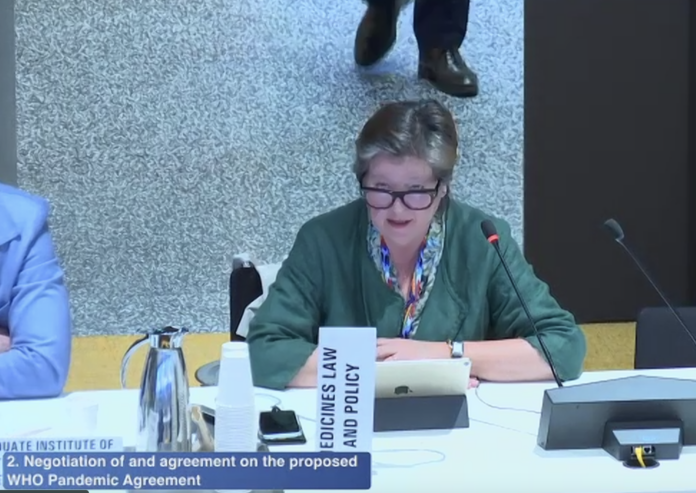Madam co-chairs, delegates,
This very week, from 7 to 9 April the 3rd World Local Production Forum is taking place in Abu Dhabi. Actions towards expanding local production of medical products have accelerated after the Covid-19 pandemic, which laid bare the inequitable distribution of manufacturing know-how and technology. And the reluctance of rights holders to share their technologies, including through platforms facilitating voluntary licensing, such as CTAP and the MPP.
Expanding local production is essential for pandemic preparedness. It requires, however, transfer of technology. That is why we have Article 11. Article 11 puts a strong emphasis on TT being on mutually agreed terms.
But, this does not mean that governments should give up on other measures at their disposal under international law to make technology transfer happen. Therefore the footnote to Art 11 needs to be amended to refer to “other” measures “compliant with parties’ rights and obligations under international law”. The current text only refers to obligations, which ignores important provisions in IP law to protect the public interest and would be inconsistent with para. 4.
Respect for intellectual property law includes respecting the flexibilities it contains to protect the public interest.
Ellen ‘t Hoen, LLM PhD, is a lawyer and public health advocate with over 30 years of experience working on pharmaceutical and intellectual property policies.
